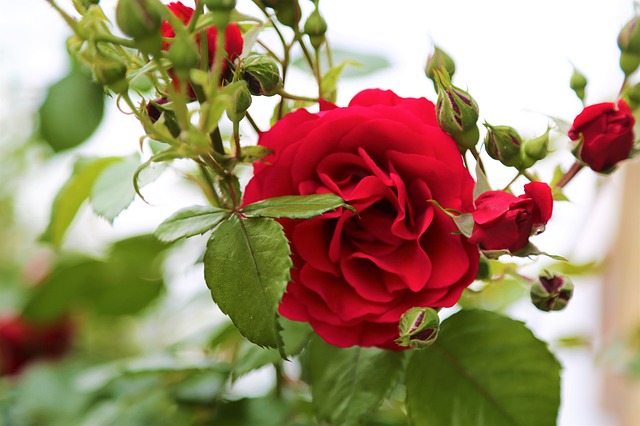
A lot gardeners find the hobby to be both relaxing and therapeutic. It is well worthwhile to research the best soil and tools to use and learn when and how to plant your seedlings or seeds for your horticulture project. This article contains important information for anyone wanting to begin a garden.
Fight pests before you even plant, by getting your soil in shape. Healthy soil equals healthy plants and healthy plants can fight off diseases with ease. Begin with a high-quality soil with less chemicals to avoid salt accumulation, and you give your garden an excellent chance of growing healthy plants.
Before you begin to plant your garden you will need to check the soil. A soil analysis is inexpensive and can be used to figure out which nutrients should be added to provide a healthy garden environment. The cost of the analysis will be easily offset by the benefits of a healthy and vibrant crop.
Be sure to do some weeding on a regular basis. A vibrant garden will be overrun with weeds if they are left alone. A clever way to accomplish this is with the help of some white vinegar. White vinegar will definitely kill the weeds! If you don’t want to take the time to remove the weeds by hand, simply spray them with a white vinegar solution.
Be vigilant about keeping moisture off your plants. Parasites are attracted to the moisture on plants. Fungi is very common. Fungus can be handled with sprays specifically formulated for fungi control, but you must treat the area with spray before seeing any kind of problems.
If you want the best tasting vegetables, learn about the optimum time to harvest them. Each variety needs a slightly different amount of growing time to produce the most flavorful vegetable. For instance, for the best flavor, zucchini and baby peas should be picked when they are young. On the other hand, tomatoes taste best when they are as ripe as possible from the vine. So, make sure you do some research, and find out when the best time to harvest your vegetables is.
Gardening can be a relaxing hobby. A plethora of paths to individual relaxation and inner peace exist. Gardening is fun, and it is definitely one of the best ways to achieve this state. It doesn’t require a lot of cash up front, but pays major dividends. The biggest dividend is the emotional satisfaction of planting and growing greens on your own.
Asprin will actually help your plants out by killing diseases. An aspirin and a half, combined with a couple of gallons of water, will do amazing things for your plants. Next, coat the plant with the aspirin mixture by spraying it on the leaves. Apply this solution to your plants every few weeks.
Having a garden of perennials can be an easy and quick process. Use your spade to slice chunks of turf up, then flip each piece over, and spread wood chips on top to a depth of four inches. Wait two weeks or so, and then you are ready to jump right in with digging and planting.
Have plastic bags on hand so that you may cover your muddy gardening shoes. This allows you to keep going, getting back to your garden quickly.
Pine can make for a great type of mulch. Many types of plants thrive in soil that has high acid levels. For such plants, pine needles function both as a handy mulch and as a soil amendment to lower the pH. Cover your beds with the needles, as they will decompose and disperse their acid throughout the soil.
Space is very important when you plant an organic garden. When the garden is bare, it is sometimes hard to envision how much space a mature plant actually needs. Space is necessary for the plants, but air circulation is also important. Therefore, ensure that you allow for ample spaces between your seedlings.
Aim to increase your property’s value. Improving your landscape is one of the best ways to get a high return from your house. Strategic landscaping can increase the resale value of your home up to 20%, if you choose the right plants. The plants you buy should be able to withstand normal regional weather conditions.
Take the season and weather conditions into account when determining how much water to give your plants. Depending upon whether it is morning, noon or night, the chemical composition of your local water supply and soil type may determine your water usage needs. An example would be that if you live in a humid and warm climate, then you’ll want to avoid watering the plant’s leaves as this will cause fungus to grow on your plants. Instead focus on watering the root system.
Be careful with the amount of water that you’re giving your plants when horticulture. Roots need to draw in nutrients via the soil, and they cannot do this if they’re flooded with water. Prior to watering your outdoor plants, you should check with weather stations to see if it will be raining later in the day. If a downpour is coming, you may want to forgo watering your plants that day.
In summation, gardening can be fun and satisfying, but you should follow some basic guidelines in order to get the most from your garden. Create aromatic flowers, delicious vegetables, sweet fruit and lush foliage with a relaxing, enjoyable hobby. Simply use the advice presented here and wonderful garden will be growing from your land.